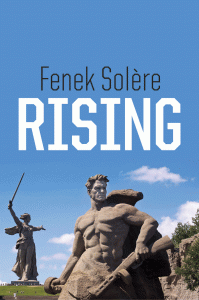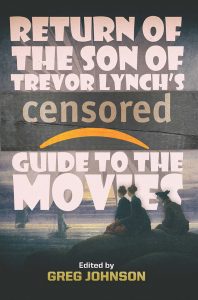Memories of Underdevelopment: Revolution & the Bourgeois Mentality
Now that we are wallowing in a major war in Ukraine and are caught in the throes of a cultural and political revolution in the United States, I recall an interesting arthouse film I discovered some years ago when I lived in Boston at one of the queens of arthouse theaters: Memorias del Subdesarrollo, or Memories of Underdevelopment, which is a 1968 Cuban film by Tomás Gutiérrez Alea. Alea adapted the novel by Edmundo Desnoes, which deals with the Cuban Revolution and its effect on one Sergio Carmona Mendoyo (played by Sergio Corrieri), a bourgeois loner who sees himself becoming obsolete, as he thinks, wanders, and reminisces on what it — and he — was all about as he sees himself and bourgeois Cuba slowly fall into the wastebasket of history.
The film begins with as Sergio walks into some street violence as black musicians play harder and faster, unaware that there is a murdered man in the midst of a tangled crowd. A black woman stares at the camera in freezeframe (the first of many), and we’re shown a crowd unaware of violent death as life and passion go on.
The next scene offers more subtle trauma. Sergio is at Havana’s airport, saying goodbye to his parents. It’s 1960, and they’re scooting off to Miami. It’ a tearful farewell for them, although not quite so tearful for Sergio. He gives a cold goodbye to Laura (Yolanda Farr), his ex-wife, as she struts to the plane, replete with fur hat and modish clothing. Sergio thinks, “Now she’ll have to work for a living — until she attaches herself to someone.”
Sergio looks like a young Gore Vidal, and has tried to be a writer. He previously had a job, but now does nothing except wander the streets, admire his art collection (as well a a small studio and desk; he seemed to have artistic plans at one time), and live off his rentals. Sergio reminds me of George Orwell when he said that Britain is full of millions of people who are civilized, but not useful.
Sergio is caught up in the revolution, yet Alea’s view of it is undramatic. Life goes on. There are changes here and there; a bare pedestal marks where the statue of a great Cuban has been removed. The shop windows are bare; a former fashion shop, now emptied of mannequins in the latest frocks, offers a lone photo of Castro. The revolution isn’t on the sidewalks; it’s in the corner alleys.
The essence of the film is how Sergio’s involvement with the revolution lacks passion or repulsion. He concentrates on the small things: good coffee, his pair of birds, admiring art, and using his telescope to gaze at the city from his balcony. Sergio has a good pad, but is indifferent to it.
Alea’s Cuba is less in the grip of a totalitarian, aggressive tyranny — as it was imagined in America — than a society getting by and going along as always. Sergio is a face in the crowd as he examines colonial tendencies. He doesn’t think much of Cubans or Cuba, and the underdevelopment in the title can refer to his sense of Cuba as being a colonial island, as well as Sergio’s life itself. There is something incomplete about him. The film goes back and forth in his past as well as Cuba’s. D. H. Lawrence’s description of a character in Kangaroo — “Poor Richard Lovatt wearied himself to death struggling with the problem of himself and called it Australia” — might well apply to Sergio. He is his own colony.
Sergio recalls his happy, middle-class childhood. His hopes of being a writer were dashed when he took over the family business. He is still a young-looking man, but with gray hair. (This was a problem Alea worried about in making Sergio Corrieri look older, like the character in Desnoe’s novel, but it has a good visual effect.) Sergio is old before his time. He observes our lives are mere repetition, and the film itself repeats scenes over and over to state this. Freezeframes recall how moments in our lives define us forever. Sergio hasn’t had a bad life, nor an exemplary one; his decision to stay behind isn’t heroic or cowardly, but merely passive. He wants to see what happens and continue with what is familiar — although without purpose, this leads to stagnation.

You can buy Fenek Solère’s novel Rising here
As he and his friend Pablo drive around the city, Pablo, who is leaving shortly for Miami, derides Cuba and how it will all collapse. His pessimism is vibrant compared to Sergio’s dispassionate observation. Sergio observes how all the people leaving — Pablo, his family, the nagging and materialistic Laura — are people he can do without. But who is left for him to bond with? His art collection? His birds?
Sergio picks up Elena (Daisy Granados), a teenager who is initially cold to Sergio’s advances, but warms up when he mentions that he has friends in the film industry. Elena, an aspiring actress, is reeled in, and Sergio introduces her to his friends. She is offered a screen test, then afterwards she and Sergio flirt and play cat-and-mouse in his apartment. He gives the fashion-conscious Elena some of his wife’s clothes. She protests, then takes them.
Sergio realizes that he has little in common with Elena. She shares none of his artistic interests. He takes her to Finca Vigia, which was Ernest Hemingway’s Cuban home. He studies all the book-lined walls and hunting trophies, takes in the glowing tour given by the caretaker, and thinks about how Hemingway likely never thought of the Cubans as anything except servants — which was probably true, but Hemingway never thought of anyone but himself, anyway. The great artist fled, like all the Americans who had lived there. Sergio feels more separation, especially when Elena is bored by all the books and “dead animals.” He ditches her and sneaks out.
As much as he is cold to the revolution, he takes a quiet pride in the Bay of Pigs invasion being repulsed. One of Batista’s former torturers is captured by Castro’s troops and is put on trial, weakly defending himself. Other “Free Cubans” offer little defense of their counter-revolutionary invasion that sputtered. They seem confused and unsure why they invaded. Sergio hardly admires them, but Sergio uneasily sees part of himself in the dislocation of these failed freedom fighters.
The real passion in the film comes not from revolution, but Elena’s brother and parents, who angrily accuse Sergio of deceiving and then raping her. She wants marriage; Sergio doesn’t. He is brought to trial. Again, where we expect a tribunal of bearded, angry revolutionaries in fatigues, we get one of sedate, robed justices. They hear the evidence, and while condemning Sergio’s morals, find no reason to convict him. Then he’s free.
Free to do what? To reminisce and recount his life and the women he’s known. Now we’re in Fellini territory — that of of 8 1/2, where Guido Anselmi recalls the women in his life. A strong pull for Sergio is Hanna, a German-Jewish girl whose Communist parents had fled Europe. (Revolutionary Cuba was home to a large community of Leftist exiles). She is blonde, charming, and the brief scenes of them together are short-lived, but binding. Hanna, who left Cuba for New York years before, is a strong part of the “if only” controlling Sergio’s inaction. Guido, who is a filmmaker, is able to submerge his reflections into his art. Sergio, having given up on art, has only bourgeois alienation.
By the end of the film, even that may be coming to an end. Sergio opens his door to greet a couple from the state who are asking about his apartment and those he rents to, as well as his employment status. They’re about as threatening as a clerk at the license bureau, but it’s apparent the revolution is beginning to address the country’s housing problems by confiscating private property — for the good of the people, of course. Sergio is uneasy, but still passive.
A second jolt to his despair is a panel discussion he attends on solving the class and social barriers in the new Cuba. It is a long session about adjusting socialism to the strictures of class and society, and about the need for a dialogue to expunge the psychological and material chains of capitalism and colonialism. It’s the dreariness of revolutionary thought in a repetitious panel discussion aided by the attendance of Jack Gelber, an American dramatist and Leftist who is on a visit to Cuba, as many Lefties did to make their bones in the revolution. The monotone “dialogue” is the slow, inevitable entry of dogma into Cuban life. Change the words to “race,” “gender,” “woke,” or “black lives matter,” and it’s the same socialist monotone we’ve lived through before and are still enduring. The eternal revolution; the song that has no end.
A final blow to Sergio’s isolation is the Cuban Missile Crisis of 1962. Suddenly, Cuba is under threat. President Kennedy speaks, although here we see him as a villain, as well as a sinister display of American military might. Sergio’s inner world and reflections are upstaged as the crisis boils over into the streets. Military convoys roll past him, while men and women in uniform shoulder rifles and mix with the crowds. Anti-aircraft guns are also put in place.
Sergio watches as military searchlights pierce the sky. Cuba may be underdeveloped, but it now is a player on the world stage, confronting the Yankees as well as its past subservience. One feels that a choice will be forced on Sergio as his world dissolves into those searchlights.
Alea displays alienation during the turmoil of social change. The film’s title has a double meaning: Cuba may have been underdeveloped, but Sergio and his world is overdeveloped in isolation and bourgeois nihilism. He represents a society and class that is stagnant and unable to move on. Instead, it flees or contemplates.
There are echoes of Luis Buñuel’s masterpiece Viridiana (1961), where the title character, a novice (Silvia Peneal) ready to take her vows, is called back to her uncle’s estate. Don Jaime (Fernando Rey), mourning the death of his wife, claims he needs Viridiana to cope. His estate is trapped in the past: There is no electricity, but only horsepower, and he is obsessed with his dead wife. Viridiana is almost her twin, and Don Jaime convinces Viridiana to dress up in his wife’s bridal gown, then drugs her and tries to rape her. Finally repulsed by her, and shamed and confused, he hangs himself. This world languishes until Jorge, his bastard son, enters to bring the estate into the modern world. Electricians are brought in. Wild, neglected farmland is mapped out for crops. Jorge and Viridiana begin a subtle battle over who will control the estate: she with her religious piety, or he with the electricity, crops, and pop music on the radio. It is a far more open struggle than Sergio’s understated narrative, but both are a study in bourgeois stagnation. Sergio and Don Jaime are alike in being genuinely decent men incapable of either true evil or genuine change, immersed as they are in bourgeois despair.
When I lived in Boston, I worked with Raoul Rizik, who directed a play of mine. A director and actor in Washington, DC, Raoul was from the Dominican Republic, a Communist fighting deportation for anti-war activities during the Vietnam conflict. A passionate, outspoken man, he offered no apologies for being a Communist. “I have no sympathy for the upper classes,” he said plainly. “They deserved all they got. A revolution against the bourgeoisie must be thorough. There can be no compassion.”

You can buy Return of the Son of Trevor Lynch’s CENSORED Guide to the Movies here
“What about imprisonments and executions?” I asked. “Do you approve of those?”
Raoul sighed. “And what did the bourgeoisie do for generations? In Russia? China? Cuba? Latin America? How much ‘compassion’ did they show the peasants or workers?” His frown deepened. “None, Steven, none! Or all the distortions and lies their press created to serve the industrialists and generals? Bourgeois life may be very delicate and aesthetic, but it is propped up by power.”
Raoul was stern, but he also loved to laugh, and to share culture and theater with everyone. Unlike the usual stereotypical revolutionary, Raoul was happily married and had two children. When I visited him, he doted on his infant daughter. It would have been very dynamic to have a character such as Raoul in Memories of Underdevelopment as a contrast to Sergio, but again, Alea wanted to capture the vacancy of the cultured but rootless bourgeoise caught in his world’s end.
“I once had that middle-class angst,” Raoul smiled as we drove to New York, where he was in an off-off Broadway play. “I adored T. S. Eliot, you know.” He recited “The Love Song of J. Alfred Prufrock” — all of it, verbatim.
“I did love the verse, Steven, but it is all bourgeois despair. Pointless longing and an excuse for intellectual inactivity. Such middle-class sense of importance.” He shrugged. “When I became a Marxist and discovered the class struggle, it freed me. It is too easy for us to wallow in all that ‘self,’ to make a spiritual virtue of impotence. We must understand we are social beings.”
I nodded. Raoul may have seemed like a ruthless ideologue, but his honesty and passion was unmistakable. He had answers where someone like Sergio would only observe and shrug.
But the determination of someone such as Raoul also has dangers. Certainly in the 1960s, while most of America reviled Castro and Cuba’s revolution, others praised him. He was an enormous presence among revolutionaries worldwide — the great idol of the Left until Nelson Mandela came along, and later — in a very debased form — Barack Obama. Norman Mailer said of Castro, “He was the first and greatest hero to appear in the world since the Second world War.” Abbie Hoffman was more raw: “When he stands erect, he is like a mighty penis coming to life, and when he is tall and straight, the crowd is immediately transformed.”
This stands in stark contrast to Sergio’s world, a bourgeois one unable to either fight or offer an acceptable counterweight. From Cuba to Vietnam to Afghanistan, it can only flee or offer a half-hearted military response propped up by American arms and manpower.
In my youth, the Cuban refugees were lauded by our government for seeking freedom. This continued until 1979, when Jimmy Carter’s agreement to accept refugees compelled Castro to empty his jail cells, flooding America with criminals. Al Pacino’s film Scarface is the legacy of that turnaround in sympathy for the once semi-holy Cuban refugees. That love affair was put to an end once and for all in 2000, when Elian Gonzales, a boy who had escaped Cuba along with his mother, who drowned at sea, was forcibly removed from the home of his relatives in Florida by rifle-wielding Immigration and Naturalization Service agents, who promptly sent him back to Cuba.
I opposed Elian’s deportation while my family supported it. I was disturbed by the sight of agents in body armor forcing their way into a private residence and using strong-arm tactics that would soon become familiar after 9/11 and the Patriot Act. Today, it is commonplace.
Sergio’s Cuba hasn’t gotten to this point yet, but it is obvious by the film’s end that his dislocation would soon no longer be tolerated. Most of Castro’s repressive measures came after the Bay of Pigs, when the threat of an American invasion gave his regime the pretext to enact measure after measure, from ending civil liberties to establishing neighborhood block watchers to check on residents for “anti-revolutionary activities.”
I’m on Sergio’s side, given his sensitivity and disconnection to the bourgeois life, although the irony is that his dislocation is a symptom of that life. How do we reconcile dislocation with social unity? Raoul’s passion is too strong for many of us. Alea avoids such a naked contrast, and in his film we see Sergio’s despair, which is more the result of his abandonment by his fleeing friends and family than government repression. His despair is still a response to the past, in the love lost by the women he has known and his unfulfilled spiritual and erotic needs . . . the bourgeois dilemma. It is our dilemma, too.
Memories of Underdevelopment has a special meaning nowadays since a lot of ominous events are happening all around us. We are in a revolutionary situation. We have a government that looks to be more and more under the thumb of an international force that combines revolutionary ideology and corporate domination. The Covid crisis, whatever the facts about it are, opened the door to even further suppression of individual rights. Is political opposition now a cause for arrest and prosecution?
Revolution seems to be peeking around the corner, much as it did in 1960 Havana. Alea’s film is a troubled meditation on a middle class that is slowly being squeezed out of existence. Like Sergio and most of the rest of us, I haven’t fled. I only observe and wait.
* * *
Like all journals of dissident ideas, Counter-Currents depends on the support of readers like you. Help us compete with the censors of the Left and the violent accelerationists of the Right with a donation today. (The easiest way to help is with an e-check donation. All you need is your checkbook.)
For other ways to donate, click here.



